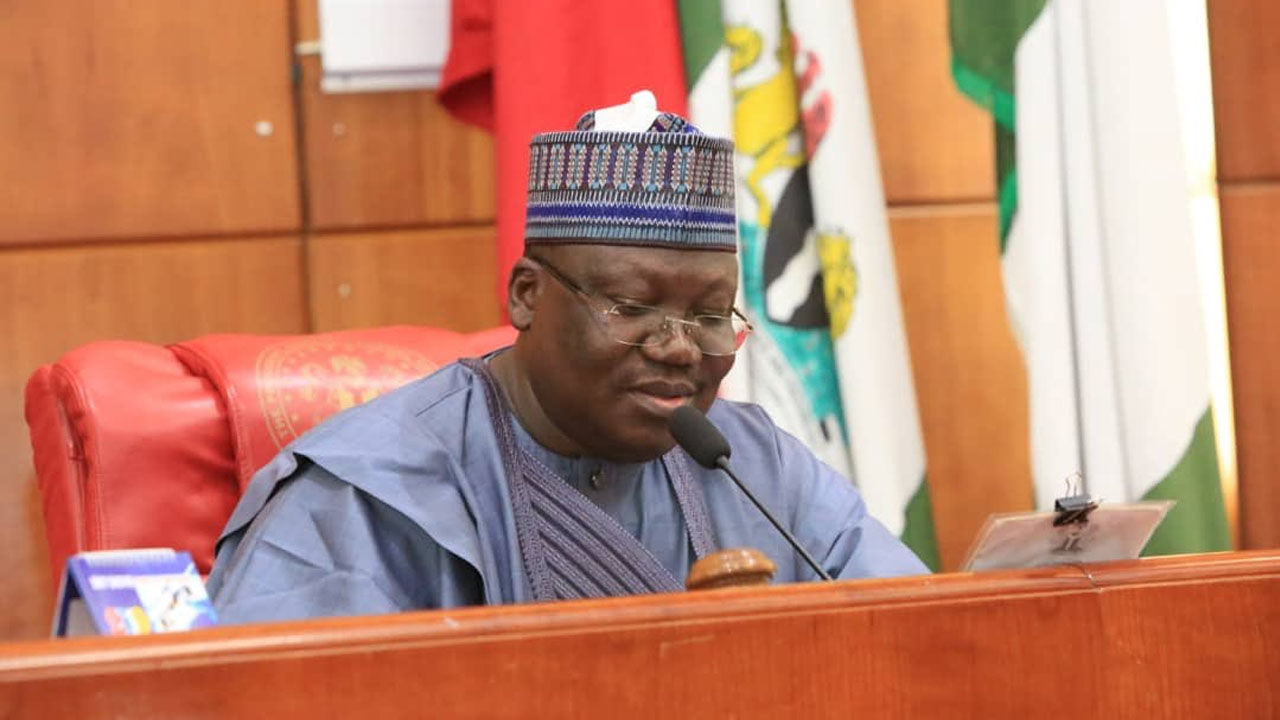• Moves to protect Nigerians from trafficking, slavery, human rights abuses
• NASS leaders, others join network against GBV
The Senate has urged the Federal Government to commence urgent diplomatic and humanitarian efforts to repatriate Nigerian women and their children currently languishing in Libyan prisons.
The resolution followed a motion sponsored by Senator Bassey (Cross River South) on the urgent need to protect Nigerians from trafficking, slavery, and human rights abuses in Libya.
Natasha Akpoti-Uduaghan, representing Kogi Central District, moved an additional prayer calling on the Nigerian Immigration Service (NIS) and the Nigeria Correctional Service (NCS) to liaise with their Libyan counterparts to facilitate the repatriation of Nigerian female inmates and their children born in detention.
The prayer was seconded by the Senate Leader, Opeyemi Bamidele and was adopted. According to Akpoti-Uduaghan, “many of these women were victims of human trafficking who escaped forced prostitution and captivity, only to end up incarcerated.
“While in detention, several of them suffered sexual assault by prison officials, resulting in pregnancies. Their children, born in prison, must not be condemned to lives of neglect for circumstances beyond their control,” she said.
Bassey, while presenting the motion, expressed concern that irregular migration through Libya had become a notorious route exposing thousands of Nigerians to grave dangers—including trafficking, slavery, ransom extortion, and other human rights violations.
The Senate, following extensive deliberations, also resolved that the Federal Government, through the Ministry of Foreign Affairs, the Ministry of Humanitarian Affairs, and NAPTIP, should establish a comprehensive reintegration and protection programme for Nigerian returnees from Libya—including psychosocial support, vocational training, and enterprise start-up assistance.
It also called for intensified diplomatic engagement with Libyan authorities and collective regional and international action through the African Union (AU), ECOWAS, and the United Nations (UN) to secure the safety of Nigerians in Libyan detention camps and ensure accountability for human rights abuses, among others.
Adams Oshiomhole, in his prayer, urged the National Orientation Agency (NOA) and other relevant agencies to intensify public sensitisation on the dangers of irregular migration to conflict-prone or unstable countries, which was seconded by Ned Nwoko and adopted.
Other senators supported the motion, describing the plight of Nigerian migrants in Libya as “a recurring stain on our national conscience.”
In his closing remark, Senate President Godswill Akpabio commended Bassey for raising the motion, directing the Committee on Legislative Compliance to monitor implementation of the adopted resolutions.
Meanwhile, leaders of the National Assembly, including the Senate Leader and his House of Representatives counterpart, Prof. Julius Ihonvbere, have joined a broad-based network of eminent Nigerians committed to tackling the menace of Gender-Based Violence (GBV) across the country.
Founding Executive Director of the African Centre for Leadership, Strategy and Development (Centre LSD), Dr Otive Igbuzor, disclosed this yesterday, during the launch of an online course on Male Feminism for the Prevention of Gender-Based Violence in Nigeria and Africa.
The initiative, tagged Male Feminists Network (MFN), seeks to build a society where men and women live free from violence, discrimination, and inequality.
Igbuzor said that other prominent Nigerians, including former Chairman of the Independent National Electoral Commission (INEC), Prof. Attahiru Jega, Dr Usman Bugaje, and Senator Shehu Sani, have also pledged support for the MFN campaign. He expressed optimism that the movement would achieve its goals as more Nigerians joined the cause. He also described the MFN as a bold and transformative initiative designed to challenge patriarchal norms and mobilise men as allies in the fight against GBV.
Earlier, Director of Development at Centre LSD, Dr Margaret Fagboyo, emphasised that the struggle against GBV had for too long been led mainly by women and women’s organisations. She said sustainable change could only be achieved when men become active allies rather than passive observers.






